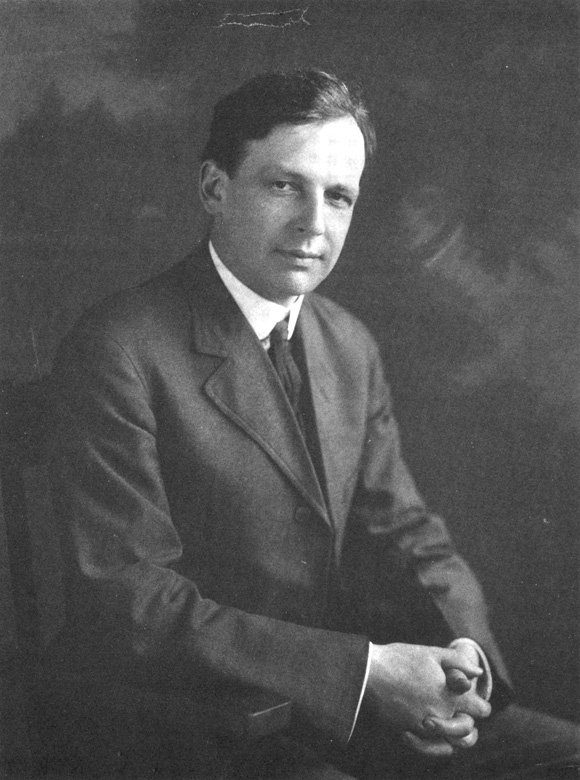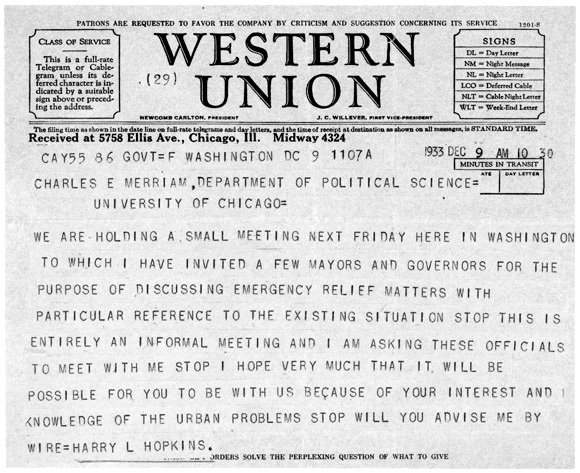Charles E. Merriam (1874-1953): Political Science
During his years as a political science professor at the University of Chicago, Merriam actively participated in the political process that was the focus of his academic research. Merriam believed that at some point theories of political process needed to be linked to practical political activity.
Although University administrators were not uniformly enthusiastic about Merriam's political involvements, he nonetheless plunged into the local electoral fray. His work as alderman and on several commissions for the City of Chicago spanned almost two decades, earning him a solid reputation in both Chicago and national political circles for his efforts to root out corruption. Serving on several investigatory commissions during the first two decades of the twentieth century, Merriam gained favor among progressives by exposing fraudulent use of public funds, although his work sometimes threatened Republican Party regulars. Even after dropping out of direct office-seeking campaigns following his defeat in the mayoral primary in 1919, Merriam continued to serve on local and national committees for much of his life. President Herbert Hoover appointed him to serve on the Research Committee on Social 'Fends, and he later served on the National Resources Planning Board under Franklin D. Roosevelt. His service under Roosevelt during the Great Depression brought him as close as he ever came to realizing his goals of progressive social intervention and change.
As a political scientist, Merriam was intrigued by the methodology he saw emerging in the fields of philosophy, sociology, psychology, and anthropology. Merriam hoped to steer political theory along a path that incorporated these methods but that resisted their deterministic tendencies. Often called the father of the behavioral movement in political science, he made the department at Chicago the nation's leader in the production of more than a generation of major figures in the field.
Merriam's deep involvement in philanthropic organizations, his teaching and writing, and his work in creating the Social Science Research Council and the Public Administration Clearing House exemplified his belief in the need for new organizations for systematic reform. By utilizing systematic and objective analytical methods, Merriam was convinced that the political process could be used to improve the quality of life. Improvements in science and technology were mass gains, as he often put it, and needed to benefit all people.


